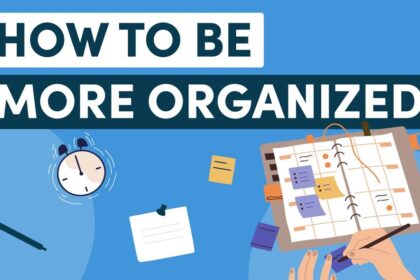The Importance of Feedback in the Workplace 2024, In today’s dynamic and competitive business landscape, organizations that prioritize continuous improvement and employee development are better positioned to thrive and succeed. One of the most powerful tools for fostering growth and driving positive change is feedback – a two-way communication process that provides insights, suggestions, and constructive criticism aimed at enhancing performance and cultivating a culture of excellence. Effective feedback is crucial for both individual and organizational success, and its importance cannot be overstated.
- Facilitates Professional Development
Feedback is a fundamental component of professional development. By receiving candid and constructive feedback, employees gain valuable insights into their strengths, weaknesses, and areas for improvement. This awareness empowers them to identify and address skill gaps, refine their approach, and continuously enhance their performance. Effective feedback serves as a roadmap, guiding individuals toward their professional goals and enabling them to unlock their full potential. - Promotes Self-Awareness and Growth Mindset
In addition to identifying areas for development, feedback plays a pivotal role in fostering self-awareness and cultivating a growth mindset among employees. When individuals receive honest feedback, they are encouraged to reflect on their actions, behaviors, and thought processes. This introspection can lead to a deeper understanding of one’s strengths, limitations, and blind spots, ultimately promoting personal growth and a willingness to embrace change and continuous learning. - Enhances Communication and Collaboration
Feedback is a two-way street, and its effectiveness relies heavily on open and effective communication channels within the organization. By fostering a culture of open feedback, employers create an environment where employees feel comfortable sharing their perspectives, concerns, and suggestions. This open dialogue promotes trust, transparency, and collaboration, enabling teams to work together more effectively and efficiently. - Improves Employee Engagement and Retention
Employees who receive regular, constructive feedback often feel more valued, supported, and engaged in their roles. When employees understand that their contributions are appreciated and that their professional development is a priority, they are more likely to feel motivated, committed, and loyal to the organization. This positive impact on employee engagement and job satisfaction can lead to increased productivity, reduced turnover, and a more cohesive and motivated workforce. - Drives Organizational Learning and Adaptation
Feedback is not limited to individual development; it also plays a crucial role in organizational learning and adaptation. By fostering a culture of open feedback, organizations can gain valuable insights into their processes, systems, and practices. This feedback can inform strategic decision-making, identify areas for improvement, and drive innovation and change, enabling organizations to stay agile and responsive to evolving market demands and customer needs. - Aligns Individual and Organizational Goals
Effective feedback mechanisms ensure that individual goals and objectives are aligned with the broader organizational vision and strategy. By providing clear feedback on performance and expectations, managers can help employees understand how their roles and contributions fit into the bigger picture. This alignment promotes a sense of purpose, direction, and shared accountability, ultimately driving collective success.
To fully leverage the power of feedback in the workplace, organizations must cultivate a culture that embraces open communication, trust, and continuous improvement. This involves:
- Encouraging a growth mindset: Fostering an environment where feedback is seen as a valuable opportunity for growth and development, rather than criticism or punishment.
- Promoting two-way communication: Ensuring that feedback is a two-way dialogue, where both supervisors and employees feel comfortable providing and receiving constructive feedback.
- Providing training and resources: Equipping managers and leaders with the skills and tools necessary to deliver effective, actionable feedback while also teaching employees how to receive and respond to feedback constructively.
- Establishing feedback processes: Implementing structured feedback mechanisms, such as regular performance reviews, employee surveys, and open forums, to ensure that feedback is an ongoing and integral part of the organizational culture.
- Leading by example: Leaders and managers must model the behavior they want to see, actively seeking and acting upon feedback themselves, and demonstrating a commitment to continuous improvement.
In a world where change is constant and adaptability is essential, feedback becomes a powerful catalyst for growth and success. By embracing feedback as a core organizational value, companies can unlock the full potential of their workforce, foster a culture of continuous learning, and drive innovation and progress. Ultimately, the importance of feedback in the workplace lies in its ability to empower individuals, strengthen teams, and position organizations for long-term success in an ever-evolving business landscape.








